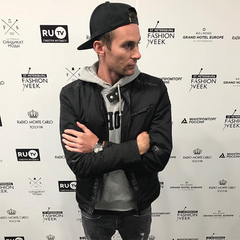Сжигали и плакали
"Unsere vater, unsere mutter" (2013 год, Германия)
Буквально недавно на экраны в Германии вышел новый фильм о немецком обществе в годы правления Гитлера. Необычность - хотя, может для современного европейского кино, закономерность, то что главными антисемитами в фильме представлены поляки и украинцы, но никак не немцы.
Пока что посмотрел первую серию, которая есть на русском языке.
1941 год. Пятеро друзей в Берлине - три парня и две девушки. Они слушают свинг, пьют шнапс и собираются отправиться на Восточный фронт. Один из парней - офицер, прошедший кампанию во Франции и Польше. Другой - его брат, воспитанный на гуманистических идеалах философии XIX века. А третий - еврей Гольдштейн, и как говорится за кадром: "ну его мастерскую папы разгромили в Хрустальную ночь, но мы все равно любим его". Грета встречается с Гольдштейном, о чем сказано так: "ну ее не интересуют расовые законы".
И вот когда компания друзей сидит в баре и гудит, провожая мужчин на фронт,неожиданно туда приходит полиция. "Нам донесли, что здесь слушают свинг с евреями" (да, нет, вы знаете, вообще-то тут была гомосексуальная оргия с китайцами и неграми). Полиция очень корректно зовет провинившихся к себе.
А дальше - Восточный фронт, где главный злодей, по-моему, мороз и СС-овцы, терпеть которых не может ни один солдат Вермахта. Вермахт стремительно разлагается - видимо тем самм режиссеры пытаются доказать, почему все же эти "русские недочеловеки" выиграли. Дети в деревнях под Москвой зигуют солдатам в шутку. Гауптман раздает им куклы и шоколад, говоря: "Смотри Фридрих, вот от одной идеологии отучили, других приучим".
В госпитале скрывают еврейку - причем делает это девушка из лиги "Немецких женщин". Звучит надзидательная фраза: "как же мы победим их, если они лучше нас"?.
Вообще фильм, конечно, очень трешовый. Но не стоит все же огульно критиковать сразу. Ибо есть интересные моменты, которые германский кинопром показывает все же реалистично:
1) Холокост официально начался в 1942 году с момента тайного подписания документа, вошедшего в историю как "Окончательное решение еврейского вопроса". К тому времени толерантность германцев относительно нацменьшинств была достаточно высокой - что не умаляет масштаб крематориев, который был развернут потом.
2) Западноукраинцы и поляки - довольно редкостная мразь, если объективно смотреть на их участие в событиях.
3) Да, в России были люди, кто не любил Сталина и не был в достаточной степени обработан социалистической системой.
Но в остальном конечно наивно думать, что Германия имела право на ту войну, потому что, как выражается один из героев фильма: "во время оккупации Рура моя семья добывала еду себе охотой, поэтому теперь я стреляю в большевиков". Да и слушающие свинг немцы и укрывающие евреев - может быть, 1-2% от всего населения, а показывать по ним остальных - глубоко неправильно.
"Unsere vater, unsere mutter" (2013 год, Германия)
Буквально недавно на экраны в Германии вышел новый фильм о немецком обществе в годы правления Гитлера. Необычность - хотя, может для современного европейского кино, закономерность, то что главными антисемитами в фильме представлены поляки и украинцы, но никак не немцы.
Пока что посмотрел первую серию, которая есть на русском языке.
1941 год. Пятеро друзей в Берлине - три парня и две девушки. Они слушают свинг, пьют шнапс и собираются отправиться на Восточный фронт. Один из парней - офицер, прошедший кампанию во Франции и Польше. Другой - его брат, воспитанный на гуманистических идеалах философии XIX века. А третий - еврей Гольдштейн, и как говорится за кадром: "ну его мастерскую папы разгромили в Хрустальную ночь, но мы все равно любим его". Грета встречается с Гольдштейном, о чем сказано так: "ну ее не интересуют расовые законы".
И вот когда компания друзей сидит в баре и гудит, провожая мужчин на фронт,неожиданно туда приходит полиция. "Нам донесли, что здесь слушают свинг с евреями" (да, нет, вы знаете, вообще-то тут была гомосексуальная оргия с китайцами и неграми). Полиция очень корректно зовет провинившихся к себе.
А дальше - Восточный фронт, где главный злодей, по-моему, мороз и СС-овцы, терпеть которых не может ни один солдат Вермахта. Вермахт стремительно разлагается - видимо тем самм режиссеры пытаются доказать, почему все же эти "русские недочеловеки" выиграли. Дети в деревнях под Москвой зигуют солдатам в шутку. Гауптман раздает им куклы и шоколад, говоря: "Смотри Фридрих, вот от одной идеологии отучили, других приучим".
В госпитале скрывают еврейку - причем делает это девушка из лиги "Немецких женщин". Звучит надзидательная фраза: "как же мы победим их, если они лучше нас"?.
Вообще фильм, конечно, очень трешовый. Но не стоит все же огульно критиковать сразу. Ибо есть интересные моменты, которые германский кинопром показывает все же реалистично:
1) Холокост официально начался в 1942 году с момента тайного подписания документа, вошедшего в историю как "Окончательное решение еврейского вопроса". К тому времени толерантность германцев относительно нацменьшинств была достаточно высокой - что не умаляет масштаб крематориев, который был развернут потом.
2) Западноукраинцы и поляки - довольно редкостная мразь, если объективно смотреть на их участие в событиях.
3) Да, в России были люди, кто не любил Сталина и не был в достаточной степени обработан социалистической системой.
Но в остальном конечно наивно думать, что Германия имела право на ту войну, потому что, как выражается один из героев фильма: "во время оккупации Рура моя семья добывала еду себе охотой, поэтому теперь я стреляю в большевиков". Да и слушающие свинг немцы и укрывающие евреев - может быть, 1-2% от всего населения, а показывать по ним остальных - глубоко неправильно.
Burned and cried
"Unsere vater, unsere mutter" (2013, Germany)
Just recently, a new film about German society in the years of Hitler’s reign was released on screens in Germany. Unusual - although it may be for modern European cinema, a regularity, the fact that the main anti-Semites in the film are Poles and Ukrainians, but not Germans.
So far, I have watched the first series, which is in Russian.
1941 Five friends in Berlin - three guys and two girls. They listen to swing, drink snaps and are going to go to the Eastern Front. One of the guys is an officer who has gone through a campaign in France and Poland. The other is his brother, brought up on the humanistic ideals of nineteenth-century philosophy. And the third is Goldstein, a Jew, and as they say behind the scenes: "Well, his dad's workshop was crushed on Crystal Night, but we still love him." Greta meets with Goldstein, which is stated as follows: "Well, she is not interested in racial laws."
And when a group of friends is sitting in a bar and buzzing, seeing off men to the front, the police suddenly come there. “They told us that they were listening to the swing with the Jews” (yes, no, you know, actually there was a homosexual orgy with the Chinese and blacks). The police are very correctly calling the guilty to him.
And then - the Eastern Front, where the main villain, in my opinion, is frost and SS-sheep, which no Wehrmacht soldiers can tolerate. The Wehrmacht is rapidly decomposing - apparently, the directors are trying to prove by the very reason why these “Russian subhumans” still won. Children in the villages near Moscow ziguyut soldiers in jest. Hauptman distributes dolls and chocolate to them, saying: "Look, Friedrich, weaned one ideology, we teach others."
A Jewish woman is hidden in the hospital - and this is done by a girl from the German Women League. It sounds like a watchful phrase: “how can we beat them if they are better than us”?
In general, the film is, of course, very trashy. But do not still indiscriminately criticize immediately. For there are interesting moments that the German film industry still shows realistically:
1) The Holocaust officially began in 1942 from the moment of the secret signing of the document that went down in history as the "Final Solution to the Jewish Question." By that time, the tolerance of the Germans with respect to national minorities was quite high - which does not detract from the scale of the crematories, which was later developed.
2) Western Ukrainians and Poles-a rather rare scum, if you objectively look at their participation in the events.
3) Yes, in Russia there were people who did not like Stalin and were not sufficiently processed by the socialist system.
But otherwise, it’s certainly naive to think that Germany had the right to that war, because, as one of the film’s heroes puts it: “During the occupation of the Ruhr, my family hunted for food, so now I shoot the Bolsheviks”. Yes, and listening to the swing Germans and harboring Jews - maybe 1-2% of the entire population, and to show the rest of them - is deeply wrong.
"Unsere vater, unsere mutter" (2013, Germany)
Just recently, a new film about German society in the years of Hitler’s reign was released on screens in Germany. Unusual - although it may be for modern European cinema, a regularity, the fact that the main anti-Semites in the film are Poles and Ukrainians, but not Germans.
So far, I have watched the first series, which is in Russian.
1941 Five friends in Berlin - three guys and two girls. They listen to swing, drink snaps and are going to go to the Eastern Front. One of the guys is an officer who has gone through a campaign in France and Poland. The other is his brother, brought up on the humanistic ideals of nineteenth-century philosophy. And the third is Goldstein, a Jew, and as they say behind the scenes: "Well, his dad's workshop was crushed on Crystal Night, but we still love him." Greta meets with Goldstein, which is stated as follows: "Well, she is not interested in racial laws."
And when a group of friends is sitting in a bar and buzzing, seeing off men to the front, the police suddenly come there. “They told us that they were listening to the swing with the Jews” (yes, no, you know, actually there was a homosexual orgy with the Chinese and blacks). The police are very correctly calling the guilty to him.
And then - the Eastern Front, where the main villain, in my opinion, is frost and SS-sheep, which no Wehrmacht soldiers can tolerate. The Wehrmacht is rapidly decomposing - apparently, the directors are trying to prove by the very reason why these “Russian subhumans” still won. Children in the villages near Moscow ziguyut soldiers in jest. Hauptman distributes dolls and chocolate to them, saying: "Look, Friedrich, weaned one ideology, we teach others."
A Jewish woman is hidden in the hospital - and this is done by a girl from the German Women League. It sounds like a watchful phrase: “how can we beat them if they are better than us”?
In general, the film is, of course, very trashy. But do not still indiscriminately criticize immediately. For there are interesting moments that the German film industry still shows realistically:
1) The Holocaust officially began in 1942 from the moment of the secret signing of the document that went down in history as the "Final Solution to the Jewish Question." By that time, the tolerance of the Germans with respect to national minorities was quite high - which does not detract from the scale of the crematories, which was later developed.
2) Western Ukrainians and Poles-a rather rare scum, if you objectively look at their participation in the events.
3) Yes, in Russia there were people who did not like Stalin and were not sufficiently processed by the socialist system.
But otherwise, it’s certainly naive to think that Germany had the right to that war, because, as one of the film’s heroes puts it: “During the occupation of the Ruhr, my family hunted for food, so now I shoot the Bolsheviks”. Yes, and listening to the swing Germans and harboring Jews - maybe 1-2% of the entire population, and to show the rest of them - is deeply wrong.
У записи 19 лайков,
5 репостов.
5 репостов.
Эту запись оставил(а) на своей стене Максим Петренчук






































